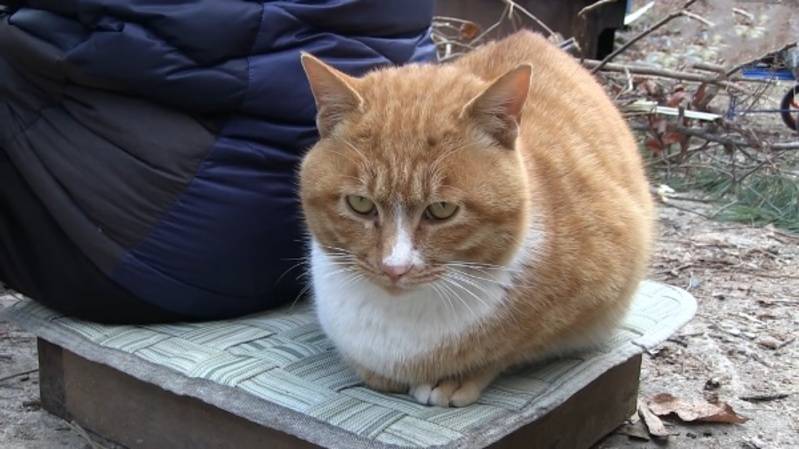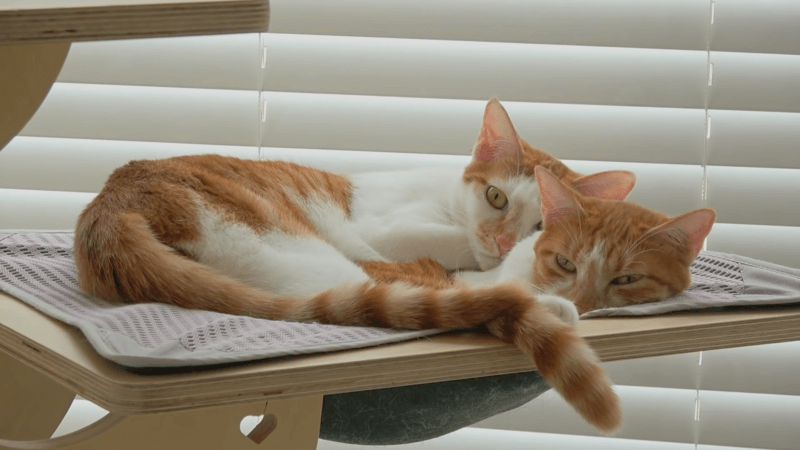No products in the cart.
CBD for older cats is becoming an increasingly popular topic in the world of pet wellness. As cats age, they may experience a decline in health and vitality, but CBD has been found to potentially offer a range of health benefits for senior cats. In this article, we will discover the topics CBD benefits for seniors , is CBD safe for elderly cats, how to care for an old cat, signs of an aging cat.
CBD for Older Cats
One of the numerous chemical substances found in cannabis that are referred to as cannabinoids is CBD. Hemp, a plant that belongs to the same species, cannabis sativa, as marijuana, is the source of CBD. Despite certain similarities between them, the cannabinoid contents of hemp and marijuana differ significantly from one another.
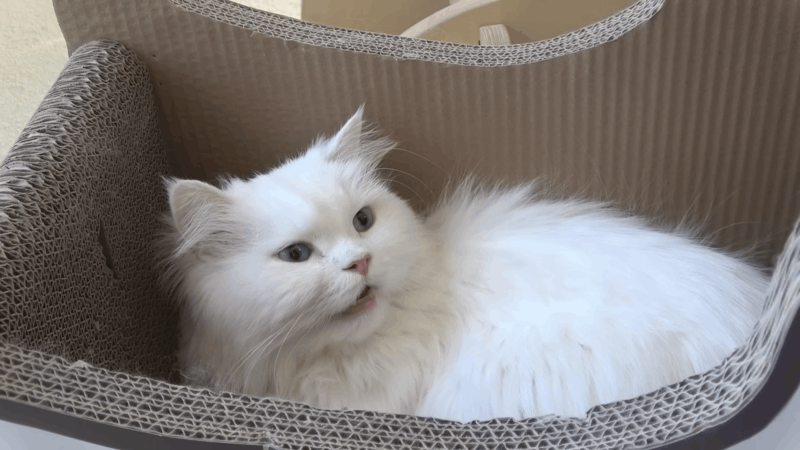
The Way CBD Works on Old Cats
As cats age, they may encounter health problems such as chronic pain, inflammation, and anxiety. CBD can affect mature cats differently and can potentially reduce these symptoms related to age-related health conditions, including arthritis and cognitive dysfunction.
CBD interacts with the endocannabinoid system in the body, which can help regulate pain perception, inflammation, and mood. CBD may help manage these conditions in older cats by reducing pain and inflammation, promoting relaxation, and improving overall well-being. However, it is crucial to speak with a veterinarian before using CBD as a treatment, particularly if the cat is already taking medications to ensure there are no conflicts.
Recommended CBD Dosage for Old Cats
CBD dosages may vary depending on various factors such as age, weight, health condition, and the concentration of CBD in the product used. It’s crucial to consult with a veterinarian who has experience with CBD use in animals for proper dosing instructions. The veterinarian can assess the cat’s condition, recommend a suitable product, and provide guidance on the appropriate dosage and administration method.
CBD Benefits for Seniors Cats
As cats age, they may experience a decline in health and vitality. However, a special treatment CBD (cannabidiol) has been found to potentially offer a range of health benefits for senior cats. Many cat owners have reported positive results from using CBD cat.
For those who want to maintain the general wellbeing of their senior cats, CBD is a possible option. It can assist mental clarity, a healthy digestive tract, and improved inflammatory function:
- Mental clarity: Senior cats may have cognitive decline and have issues remembering, picking up new information, and making judgments. CBD can help improve mental clarity and cognitive function in senior cats.
- Digestive health: Senior cats can experience diarrhea, constipation, or other digestive issues that could affect their ability to eat and general health. CBD can help support a healthy digestive tract and improve overall digestive health.
- Inflammation: Old cats will suffer chronic inflammation which leads to various health problems, such as stiffness and discomfort in their joints. CBD helps alleviate joint pain and stiffness in senior cats by minimizing inflammation.
You can give your senior cat an extra advantage to feel better and fight off any potential ailments by introducing CBD into their wellness routine.
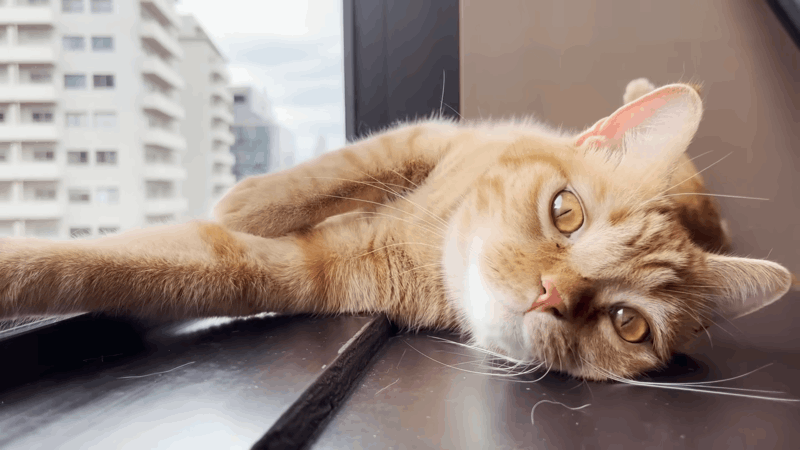
Is CBD Safe for Elderly Cats?
Based on current research, CBD appears to be safe for elderly cats when used in appropriate doses and under the guidance of a veterinarian. However, as with any supplement or medication, there may be potential risks and side effects, especially if not used correctly. It is essential to consult with a veterinarian before giving CBD to elderly cats, especially if they have underlying medical conditions or are taking other medications that may interact with CBD.
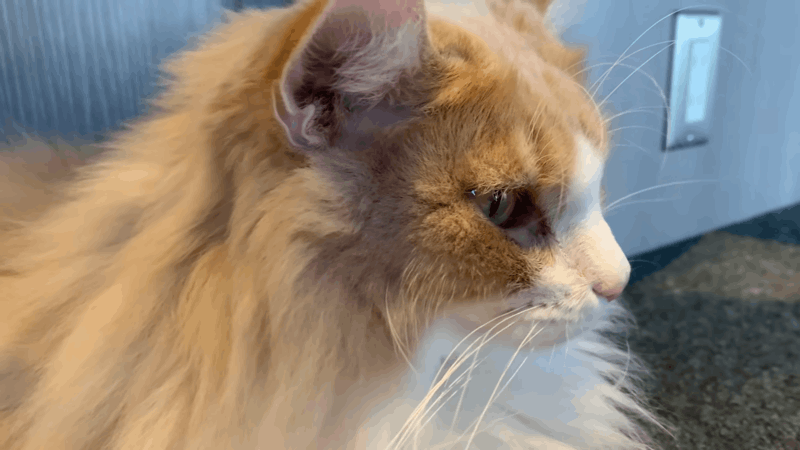
Potential Risks and Side Effects of CBD Use in Elderly Cats
Some potential risks and side effects of CBD use in elderly cats may include lethargy, changes in appetite, and gastrointestinal issues. CBD can also interact with prescription medications commonly taken by elderly cats, which may result in potentially hazardous interactions due to CBD’s impact on how some drugs are processed in the liver
Restriction When Using CBD With Other Medications in the Older Cats
When using CBD with other medications in older cats, it is important to exercise caution and consult with a veterinarian. CBD can interact with certain medications, such as blood thinners and sedatives, potentially causing adverse effects. It may be necessary to adjust the dosage of other medications or to avoid using CBD altogether.
How to Care for an Old Cat?
Caring for an old cat requires a little extra attention and care to ensure they remain healthy and comfortable. Here are some tips for caring for an old cat:
- Regular Veterinary Checkups: It is essential to take your senior cat to the vet regularly for checkups to detect and treat any health problems early.
- Nutritious Diet: Feed your senior cat a balanced and nutritious diet appropriate for their age and health condition.
- Hydration: Ensure that your senior cat is well-hydrated by providing fresh water at all times and consider adding wet food to their diet.
- Comfortable Environment: Make sure your senior cat has a comfortable and safe environment that is easy for them to navigate, with comfortable bedding and litter boxes.
- Playtime and Exercise: Encourage your senior cat to stay active with gentle playtime and exercise, such as interactive toys and scratching posts.
- Grooming: Help your senior cat with grooming, such as brushing their coat and cleaning their ears and teeth, to maintain their health and hygiene.
- Special Needs: As cats age, they may require special care, such as medication or mobility aids. Consult with your veterinarian for any specific needs your senior cat may have.
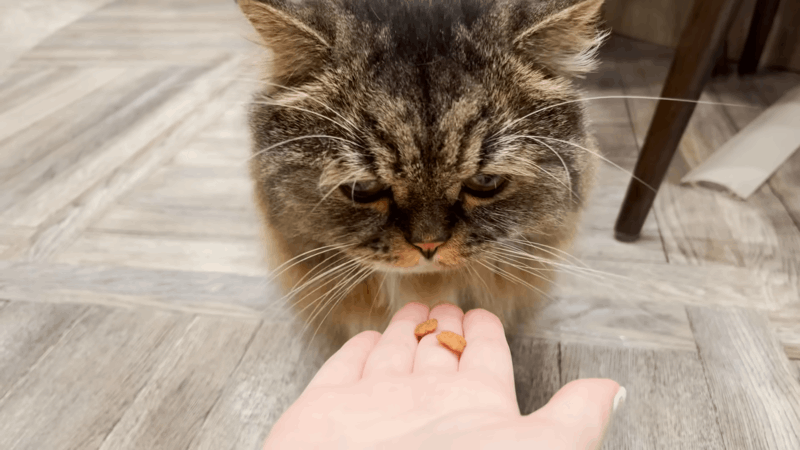
What Are Signs of an Aging Cat?
As cats age, they undergo various physical and behavioral changes. Some common signs of an aging cat include:
- Changes in appetite: An aging cat may experience a decrease or increase in appetite. They might start becoming pickier about the foods they eat.
- Decreased activity: As cats age, they tend to become less active and spend more time sleeping or resting.
- Weight loss or gain: Due to changes in their metabolism, dental issues, or other medical disorders, older cats’ weight may be unstable.
- Changes in behavior: An aging cat may become more vocal, anxious, or aggressive. They may also become more affectionate or seek out more attention.
- Joint pain and stiffness: Arthritis is common in older cats and can lead to limping, difficulty jumping or climbing, and a reluctance to move around.
- Changes in coat and skin: An aging cat’s coat may become dull, thin, or matted. They may also develop skin conditions or experience hair loss.
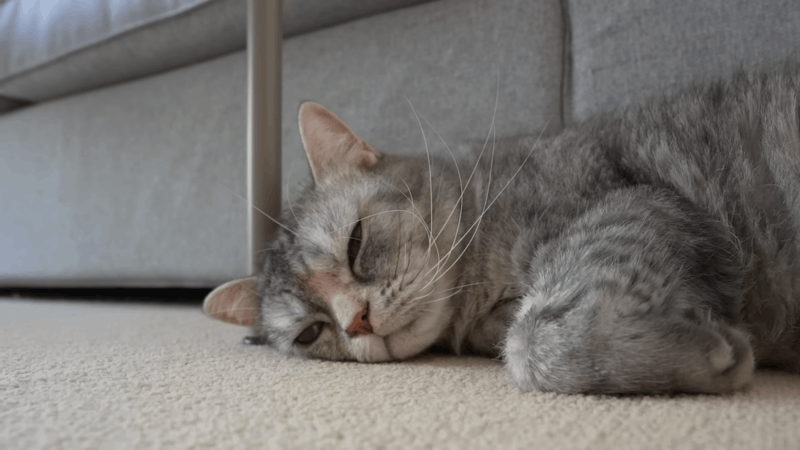
Some Behavioral Changes Occur in Aging Cats
As cats age, they may exhibit some behavioral changes such as increased vocalization, changes in litter box habits, decreased activity, increased aggression, disorientation, and changes in sleep patterns. Additionally, older cats may become more anxious, irritable, or demanding of attention.
Tips to Support Old Cat’s Behavioral Changes
There are several ways you can manage and support their aging cat’s behavioral changes:
- Regular exercise to maintain physical and mental health
- Providing a comfortable and safe living environment
- Offering mental stimulation through interactive toys and games
- Adjusting their diet to meet their changing nutritional needs
- Regular veterinary check-ups to detect and address any health issues that may be contributing to behavioral changes
- Using natural remedies or medications prescribed by a veterinarian to manage anxiety or other behavioral issues.
With proper care and attention, senior cats can maintain their health, vitality, and overall well-being.
Conclusion
Senior cats may benefit from a variety of health benefits from CBD, including decreased pain and inflammation, improved mobility, relaxation, and an increase in appetite and vitality. You can assist to make sure that your senior cat remains healthy, cozy, and content by adhering to these recommendations and seeking advice from a vet.
I am Nelson Cooper, I pursue my passion for writing and my belief is that cats love humans. I enjoy traveling and have a deep appreciation for the beauty of nature, as well as a soft spot for animals, particularly cats.


